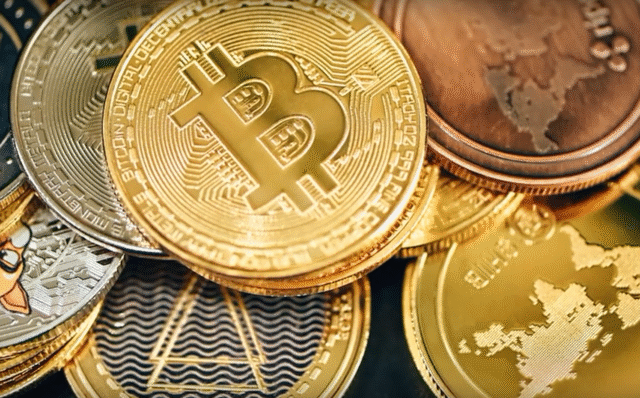In a significant leap forward for digital currency and blockchain integration, U.S.-based stablecoin issuer Circle made two major announcements this week that sent shockwaves through the crypto and fintech communities.
Circle revealed that it has partnered with Brazilian fintech firm Matera to enable multicurrency banking in Brazil. Simultaneously, it launched its flagship stablecoin USDC (USD Coin) on World Chain, a decentralized blockchain platform backed by OpenAI’s CEO, Sam Altman.
These two high-impact developments sent Circle Internet Group’s stock price soaring by over 10.7% on Wednesday. As global markets and governments continue to cautiously embrace digital finance, Circle is positioning itself at the forefront of this transformation.
USDC Officially Goes Live on World Chain
Once known as Worldcoin, the rebranded World Chain is a blockchain platform aimed at creating a more inclusive financial system using biometric identification. This week, World Chain announced that USDC is now fully integrated as a native stablecoin on the platform.
Previously, around 2 million users were holding bridged versions of USDC on the network—tokens that are technically issued on one blockchain but made usable on another. That has now changed. With Circle issuing native USDC directly within World Chain, users gain access to a more secure and seamless experience.
Circle has also activated its Cross-Chain Transfer Protocol on World Chain, allowing over 27 million users to move USDC rapidly and securely across different blockchain ecosystems. This protocol not only improves speed and efficiency but also strengthens interoperability between networks.
Interestingly, World Chain uses biometric eye scans through a spherical device called an Orb to verify a user’s identity. This process ensures that each user is a real human being and not a bot—an essential feature in a world where digital identity is becoming increasingly crucial.
The platform revealed that users are already utilizing USDC for various applications such as international remittances, in-app purchases via Mini Apps, and e-commerce transactions. With the introduction of native USDC, these use cases are expected to grow even more robust.
Circle Partners with Brazil’s Matera for Multicurrency Banking
While the World Chain integration grabbed global attention, Circle’s second announcement is just as impactful—if not more so—for the traditional banking sector.
Circle has formed a strategic partnership with Matera, one of Brazil’s leading fintech companies, to make multicurrency banking a reality for Brazilian financial institutions. The collaboration will allow banks to support Brazilian reals, U.S. dollars, and USDC—all within a single, integrated financial environment.
At the heart of this solution is Matera’s Digital Twin, a real-time ledger technology that enables institutions to hold and manage Circle’s USDC without having to build complicated infrastructure from scratch. The integration is also designed to work with Pix, Brazil’s real-time payment system run by the country’s central bank.
This means Brazilian users and banks will soon be able to use USDC in everyday transactions, transfers, and cross-border payments—all with the efficiency of Pix and the stability of a regulated digital currency.
Carlos Netto, CEO of Matera, emphasized the significance of this development:
“Interoperability between stablecoins and local currency accounts is no longer just a side project—it’s becoming a core part of the financial ecosystem. For banks and fintechs looking to go global, this is a game-changer. It enables instant settlements, reduced costs, and a smoother experience for everyone involved.”
Market Reaction: Circle’s Stock Soars
Following the dual announcements, Circle’s stock (CRCL) saw a 10.7% surge in value on Wednesday. While it dipped slightly in after-hours trading, it closed the day just shy of $117.
This growth is part of a larger trend. Circle’s initial public offering (IPO) went live on June 5, with the stock debuting at $31 per share. In just over a week, it has gained nearly 280%, reflecting growing investor confidence in the company’s strategic direction and market potential.
A Closer Look at World Chain’s Expansion
World Chain isn’t just a blockchain platform—it’s an ambitious project aimed at building a global, human-centered digital identity system. Founded in 2019 by Tools for Humanity, a company headquartered in San Francisco and Berlin, World Chain aims to connect real humans to digital services through biometric authentication.
Until recently, the platform had avoided launching in the U.S. due to regulatory concerns. But that changed in April, when World Chain officially debuted in six U.S. cities: Atlanta, Austin, Los Angeles, Miami, Nashville, and San Francisco.
Users join the platform by scanning their eyes and faces using the Orb device. In return, they receive Worldcoin (WLD)—the network’s native crypto token, currently trading at $1.16.
This system aims to tackle the growing problem of bots and fake accounts, which are rampant across digital platforms. By confirming that each user is a unique human being, World Chain lays the foundation for a more trustworthy and secure digital economy.
Privacy Concerns and Global Pushback
However, not everything has been smooth sailing for World Chain. The company has faced criticism and legal scrutiny outside the U.S. regarding its data collection practices, particularly around biometric data. Countries like Spain and Portugal have even temporarily suspended the platform’s operations, citing privacy and regulatory concerns.
Despite this, World Chain appears to be pushing forward, aided in part by crypto-friendly policies under the current U.S. administration, which has made it easier for platforms like this to operate without excessive red tape.
The Bigger Picture: The Future of Digital Finance
The partnership between Circle and Matera, combined with the launch of native USDC on World Chain, paints a clear picture: the financial world is evolving rapidly, and it’s heading toward decentralization and digitization.
Stablecoins like USDC are no longer niche tools for crypto traders. They are becoming essential instruments for everyday finance—used in savings, payments, investments, and remittances across the globe.
By bridging the gap between traditional banking and blockchain, Circle is helping to build a world where digital assets can coexist with fiat currencies, offering users more choice, speed, and efficiency.
In this emerging landscape, companies like Circle are not just service providers—they are architects of a new financial era.










